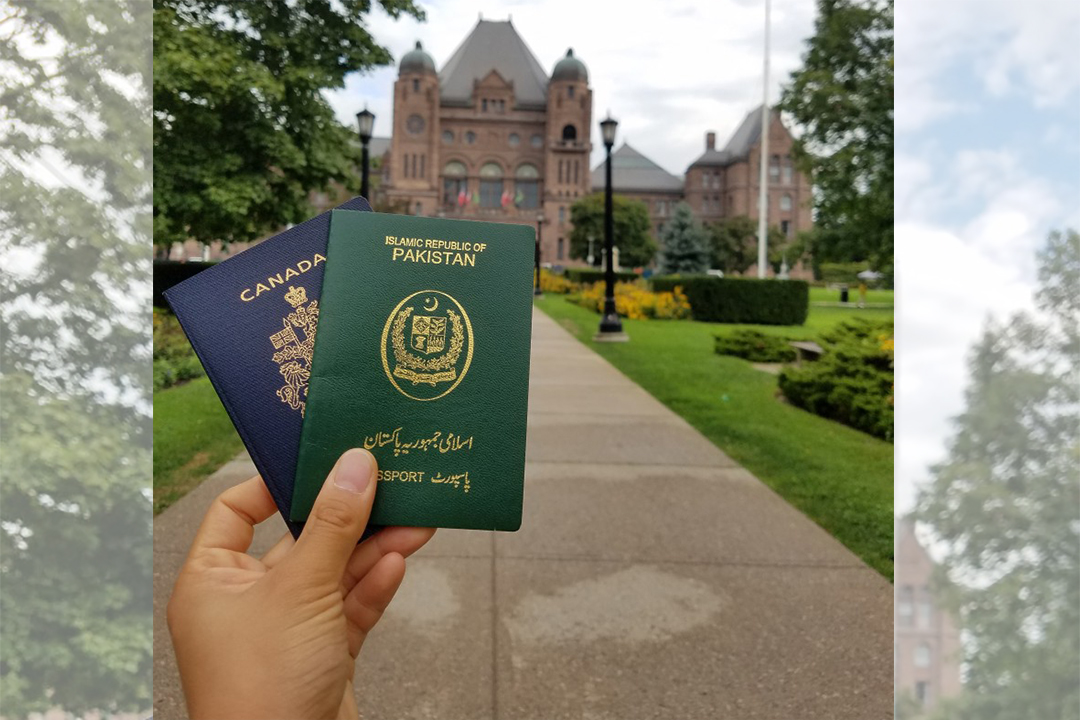Due to the pandemic, international students — who make up almost 26 per cent of the U of T student body — studying on campus this fall are facing more difficulties and barriers than domestic students.
Students and representatives of student organizations have said that international flights, study permits, visa applications, and vaccinations have been barriers for students returning to Canada to study on campus.
For students returning to U of T from India, it’s even tougher. With direct flights from India to Canada banned, students are forced to take longer and more indirect routes back to U of T.
The university is encouraging all international students to return for in-person courses in the fall semester and will provide quarantine accommodations for those who are required to quarantine. Students who cannot return are asked to contact their registrar to discuss options.
The Varsity spoke with some international students and international student organizations to see what barriers they’re facing in returning to U of T for the fall semester.
Trouble with permits
In an interview with The Varsity, second-year student Rayhaan Jiwani spoke about the ongoing challenges he is facing as an international student. Jiwani explained that he applied for a study permit last year and still hasn’t received it, pointing out that he has waited almost 500 days for his permit.
Jiwani also sent an email to Dean Woodin and the Arts and Science management, explaining that if he doesn’t get his study permit, he would have to “be forced to take a fifth year” in his program.
“All my courses for the following year are in-person, which means that if I don’t get my study permit within the next 4-6 weeks, I will have to defer my studies by at least one semester, if not the entire academic year,” Jiwani wrote.
Likewise, the International Students Advocacy Network (ISAN) wrote in an email to The Varsity that they have seen a number of international students who are facing similar barriers to returning to school. “For some international students, they are facing severe delays to their visa application process which might delay their arrival to Toronto,” wrote the ISAN.
The ISAN expressed that visa conflicts and delays will “negatively impact” international students who want to begin their studies in the fall semester, especially when courses will be delivered in person.
Inconvenient flights
Along with conflicts involving study permits and visa applications, international students are having difficulties with flights and vaccination recognition.
For international students returning from India, the trip is even longer than usual, because students cannot fly directly from India to Canada.
In an interview with The Varsity, Nidhil Vohra, vice-president external of the Indian Students’ Society (ISS) pointed out that the absence of direct flights from India to Canada is a “primary concern,” since students would have to pay more for an alternative.
Vohra wrote, “Students have had to look for alternate flight paths from third nations which costs them more than what a regular India to Canada flight would.”
Both the ISAN and the ISS expressed concern about vaccine recognition. Travellers who are fully vaccinated with a Health Canada approved vaccine do not have to quarantine upon arrival, provided they show proof of a negative COVID-19 test result taken within 72 hours of the flight departure time. However, international students who received a vaccine not approved by Health Canada may still have to quarantine, as highlighted by the ISAN. An example of such a vaccine is Covaxin, which some students from India have received but which is not approved by Health Canada.
Financial difficulties
Earlier in August, the ISS asked students coming from India to Canada to fill out a survey regarding the challenges they faced while trying to reach campus. According to Vohra, the survey showed that many respondents were struggling financially when it came to dealing with the increasing flight fares, paying for a place to quarantine, and obtaining housing. Vohra claimed that there “aren’t bursaries or financial aid available for international students the way they are for domestic students.”
The issue of finances was also brought up by ISAN. They have had some international students reach out to them, explaining that they are unable to continue their studies at U of T because of “financial reasons,” and therefore, have to transfer out.
The ISAN pointed out that the financial barriers international students face is in contrast with the university’s intention that “no student offered admission to a program at the University of Toronto should be unable to enter or complete the program due to lack of financial means.”
The ISAN and the ISS both call for solutions to this problem. The ISS concluded that “the University should acknowledge this… burden and ensure that all students have access to efficient resources to help them through these troubled times.”
According to an FAQ for international students, those who are unable to return to Canada due to issues with travel should plan to return whenever they can, but they can contact their registrar to discuss options. Some faculties may be able to accommodate students studying online in the meantime.
The FAQ adds, “Support will be available for students upon arrival in Toronto.” U of T quarantine accommodations are available for students arriving in Canada.


